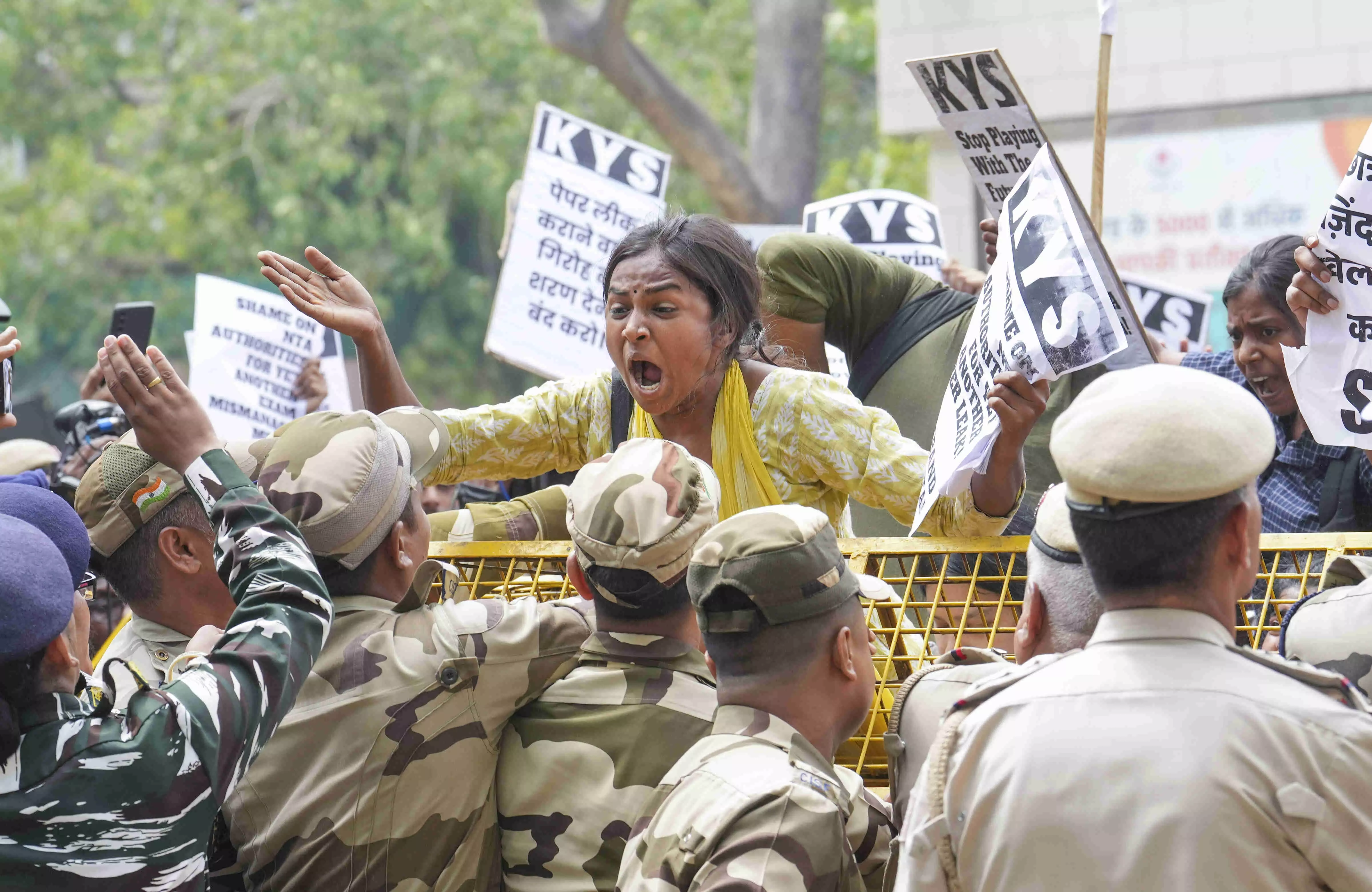A systemic malaise

The fresh cancellation of the University Grants Commission-National Eligibility Test (UGC-NET) June 2024 examination by the Ministry of Education (MoE) has come as a major blow for the National Testing Agency which is already under fire for NEET exam inconsistencies. Just a day after over 9 lakh candidates appeared for the UGC-NET exam across 317 cities, the MoE took this drastic step following inputs from the Union Ministry of Home Affairs suggesting that the "integrity of the examination may have been compromised." This unexpected decision has certainly disrupted the academic and career aspirations of thousands of students. More importantly, it has exposed the systemic vulnerabilities in India's public examination processes.
Cancellation of the UGC-NET exam, which is an essential pre-requisite for those seeking entry-level teaching jobs in Indian universities, is a serious issue and deserves accountability at the highest level, and not just implicating minor elements at the local level. The severity of the issue can be gauged from the fact that the MoE has handed over the investigation to the Central Bureau of Investigation (CBI. It must be noted here that paper leaks are not occasional occurrences in India. Over the past seven years, more than 70 examination papers have been leaked across various states, affecting the careers of over 1.5 crore youth. This problem spans multiple states and examinations, from UPPSC exams in Uttar Pradesh to Patwari recruitment in Rajasthan, and many others across Gujarat, West Bengal, Bihar, Himachal Pradesh, Madhya Pradesh, Tamil Nadu, Punjab, and Haryana. These leaks disrupt the lives of millions of candidates who invest significant time, money, and effort into their preparation. And then again, these are just the reported cases that have come under the spotlight.
A simple ground visit to the villages of Uttar Pradesh and Bihar would reveal that for many low-level exams—on which a large proportion of village youth depend—price tags are already defined, and there are go-to middlemen for the purpose. With a strong clout, these full-time ‘professionals’ are an institution in themselves. ‘Setting’ is a widely used term in certain pockets of north India, implying that illegal arrangements are made in advance, including for leaked papers. It would be unrealistic to expect that top-placed officials are completely unaware of the third-party paper leak syndicates. Even if they are, it has to be counted as a grave failure.
In proverbial terms, the NEET and UGC-NET exam controversies might just be the tip of the iceberg. If the strong chain of middlemen involved in paper leaks and other controversies is to be broken, then leaders and top-placed officials must take proactive steps with absolute integrity and honesty. UGC-NET and NEET exams are among the top exams of the country and have a more or less organised structure, but for many low-level exams which do not follow any routine timeline, irregularities, inconsistencies, and corruption go almost unnoticed. At the same time, one also has to go to the root of the problem—widespread unemployment in the country has led to immense desperation among students and their parents, prompting them to opt for unfair means, giving nefarious elements a chance to step in. This particularly holds applicable for low-level exams. Laws are already in place to tackle such exam-related inconsistencies. Administration should step up efforts to address the rot. A strong political will is non-negotiable.



